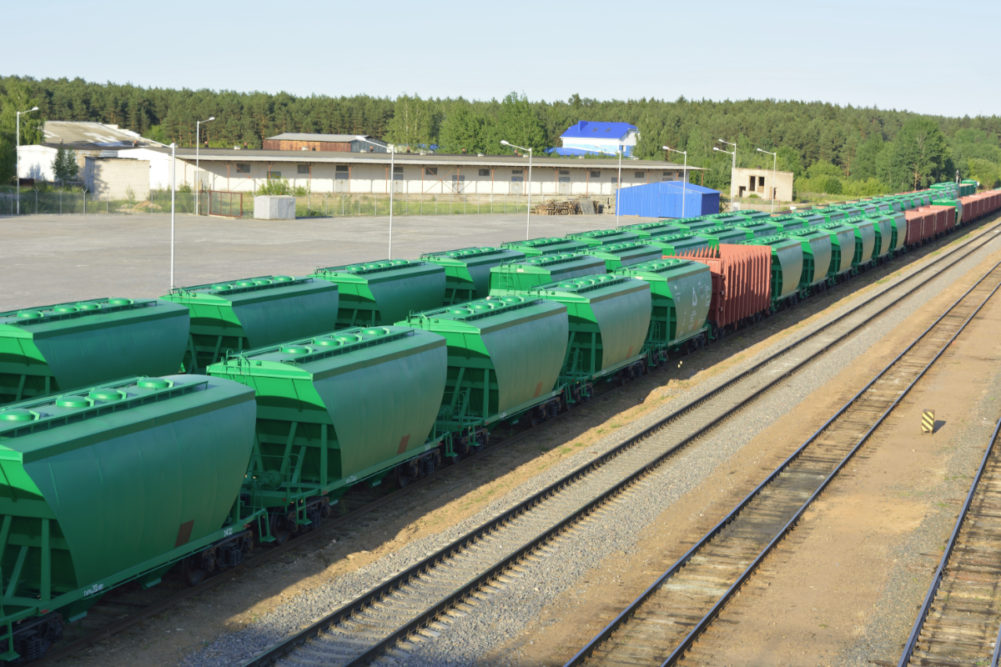WASHINGTON — In addition to its weekly rail traffic report, the Associations of American Railroads (AAR) recently issued a statement commenting on the Presidential Emergency Board’s (PEB) call for the largest general wage increase for railroad workers in 40 years.
The PEB was established July 18 by executive order from President Joe Biden to investigate an ongoing conflict between rail companies and labor unions. On one side of the dispute is the National Carriers’ Conference Committee of the National Railway Labor Conference representing five Class I railroads — including two prominent carriers of grain, the BNSF Railway Co. and Union Pacific Railway Co. — and 32 smaller rail companies, including several that operate as the Canadian National Railway Co. and Canadian Pacific Railway.
In negotiation with the carriers’ conference committee is the Coordinated Bargaining Coalition comprising 11 unions, including the brotherhoods of locomotive engineers and trainmen, railroad signalmen, boilermakers and electrical workers; and the BMWED/SMART-MD coalition composed of two additional union divisions.
In a 119-page report addressed to President Biden, the PEB recommended immediate pay increases and an average employee payout of $11,000.
“President Biden’s PEB issued recommendations that should set the framework for a negotiated agreement between railroads and unions,” said Ian Jefferies, president and chief executive officer of the AAR. “The recommendations would provide 24% compounded wage increases by 2024, with 14.1% of those increases effective immediately, along with additional service recognition bonuses totaling $5,000 over the course of the contract. An agreement based on these terms would lead to the largest general wage increase in nearly 40 years.
“While the Biden PEB’s recommendations markedly exceed the rail carriers’ proposal, they provide a useful basis to reach a resolution. In the interests of all rail stakeholders, now is the time for railroads and their unions to reach a contract. The industry is prepared to propose agreements based on the PEB’s recommendations to provide our employees with long overdue pay increases and avert rail service interruptions.”
The 119-page report is posted at www.trains.com.
Also on Aug. 17, the AAR released its weekly rail car traffic report indicating US rail traffic in the week ended Aug. 13 totaled 502,775 carloads and intermodal units, down 0.3% compared with the same week in 2021, including 237,851 carloads, up 1.3% from the same week in 2021, and 264,924 containers and trailers, down 1.8% from the week in 2021.
Of the 10 carload commodity categories tracked by the AAR, four posted increases. Among them was grain with 21,408 carloads originated in the week, up 10.5% from the same week in 2021. That brought cumulative grain carloads thus far in 2022 to 711,025 for an average of 22,220 per week, down 6% from the same period of last year.
Canadian railroads reported 74,564 carloads for the week ended Aug. 13, up 2.7% from the same week a year earlier, and 75,251 intermodal units, up 0.2%. Included were 5,086 grain carloads on Canadian railroads, down 1.8% from the same week in 2021, bringing the 2022 total to 220,140 Canadian grain carloads for an average of 6,879 per week, down 25% from the same period of 2021.
Mexican railroads reported 21,490 carloads for the week ended Aug. 13, down 1.4% compared with the same week in 2021, and 16,158 intermodal units, up 1%. Mexican grain carloads in the week totaled 1,702, down 35% from the same week in 2021, bringing the total for the year to 53,092 for an average of 1,659 per week, down 22% from the same period last year.



